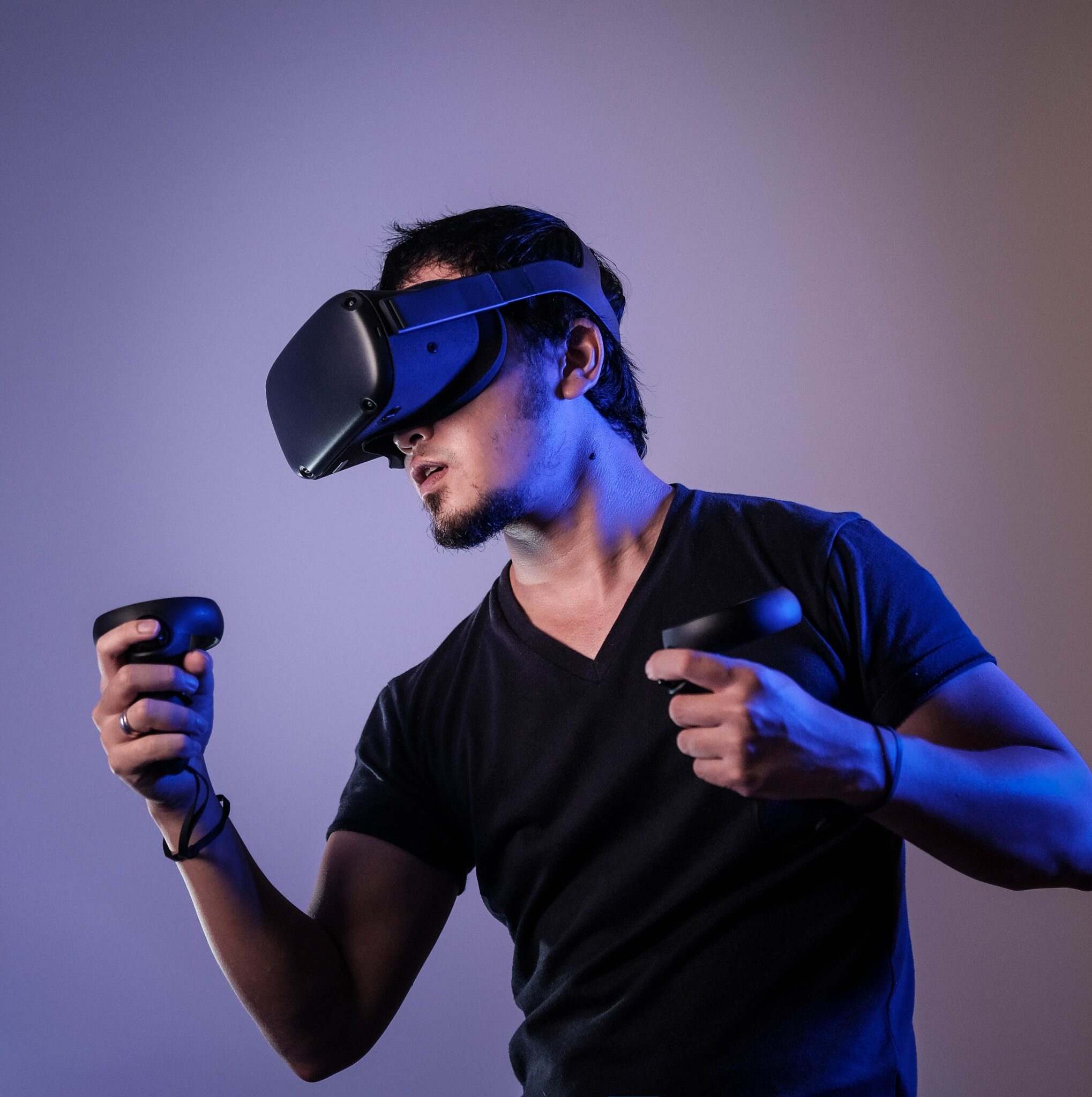
Welcome, fellow entertainment enthusiasts! It’s no secret that technology has revolutionized the way we consume and enjoy entertainment. However, with the advancements in artificial intelligence (AI), we are witnessing a new era of entertainment that was once only seen in sci-fi movies. AI in entertainment is now a reality, and it’s changing the game in exciting ways.
From film and TV to music and gaming, AI technology is making its mark in every corner of the entertainment industry. You may not even realize it, but AI is responsible for some of the most breathtaking visual effects, realistic characters, and interactive gaming experiences in recent years.
In this article, we will explore the various applications of AI in entertainment, including the rise of virtual stars, the role of AI in gaming, and how AI is impacting the music and entertainment industry. We will also examine the potential future advancements in AI-powered entertainment and the challenges that come with it.
Get ready to dive into the exciting world of AI in entertainment!
The Rise of Virtual Stars: AI in Entertainment
Move over, Hollywood A-listers. There’s a new star in town, and they’re made of code and circuit boards. With the help of AI technology, virtual stars and characters are taking center stage in the entertainment industry. From film and TV to virtual reality and augmented reality experiences, AI-generated characters are captivating audiences around the globe.
Thanks to AI, these virtual stars are more lifelike than ever. Through machine learning algorithms, they are given realistic behaviors and movements based on human motion capture data. They can even interact with the real-world environment through augmented reality.
The Making of a Virtual Star
Creating a virtual star involves a combination of artistry and technology. First, a character is designed by a team of artists and animators. Then, AI technology steps in to bring the character to life.
Machine learning algorithms analyze motion capture data to create a realistic range of movements for the character. Natural language processing technology allows the character to interact with audiences through voice commands and responses. Facial recognition technology can even capture and reflect the emotions of the character in real-time.
Enhancing the Audience Experience
The use of virtual stars and characters in entertainment isn’t just about creating something new and exciting. It’s also about enhancing the audience experience. AI technology allows for personalized interactions with virtual stars, creating a one-of-a-kind experience for each individual.
Virtual reality and augmented reality experiences also benefit from the use of AI-generated characters. By creating lifelike and interactive characters, these experiences become more immersive and engaging for the audience.
The Future of Virtual Stars
The possibilities for virtual stars and characters are endless. As AI technology continues to advance, these characters will only become more realistic and interactive. One day, we may even see virtual stars replacing human actors in some areas of the entertainment industry.
But with great power comes great responsibility. As we continue to push the boundaries of AI-generated entertainment, we must also consider the ethical implications and potential risks. Nonetheless, the rise of virtual stars is just the beginning of a new era in entertainment.
Intelligent Gaming: AI in Entertainment Powering the Future
Gaming has come a long way since the days of Pong. Today, games are not just interactive, but intelligent as well, thanks to the powerful capabilities of AI.
AI has made it possible to create NPCs that can learn and adapt to the player’s behavior, making the gaming experience more personalized and immersive than ever before.
Imagine fighting against an enemy who can predict your moves, or exploring a virtual world that changes based on your decisions. That’s the future of gaming, and AI is the key to unlocking it.
The Power of Adaptive Gameplay
With AI, game developers can create adaptive gameplay that changes based on the player’s choices and actions. This means that each playthrough of a game can be unique, creating an exciting and dynamic experience for gamers.
For example, in the action-adventure game Middle-earth: Shadow of Mordor, the AI system creates personal vendettas for each player against the NPCs. If a player is defeated by an NPC, that NPC becomes stronger and more challenging the next time the player encounters it. This creates a personalized narrative that is unique to each player and adds a sense of realism to the game.
The Future of AI-Powered Gaming
As AI technology continues to advance, the possibilities for gaming are endless. We may see games that can understand and respond to our emotions, or that can generate infinite levels of content on the fly.
Additionally, AI-powered gaming could have applications beyond entertainment. It could be used for educational and training purposes, such as simulating real-world scenarios for emergency responders or military personnel.
But with great power comes great responsibility. As AI becomes more integrated into gaming, we must remain vigilant about potential ethical concerns, such as the impact on employment and the potential for addiction.
However, with careful consideration and regulation, the future of AI-powered gaming looks bright. So get ready to level up, because the era of intelligent gaming has just begun.
The Melodies of Machines: AI’s Influence on Music and Entertainment
Move over Beethoven, there’s a new artist in town – and it’s not even human. With the rise of AI in the music industry, machines are composing music that rivals even the greatest composers of our time.
AI is being used for all sorts of tasks in the music industry, from generating lyrics to creating beats and melodies. By analyzing consumer preferences, AI can even create personalized playlists that cater to the individual’s taste.
But don’t worry, human musicians, you’re not completely obsolete just yet. While AI can certainly create music that’s pleasing to the ear, it still lacks the human touch and emotion that makes music truly great.
One area where AI has already made its mark in the entertainment industry is in content curation and distribution. Services like Netflix and Spotify use machine learning algorithms to analyze user data and recommend content that’s tailored to their preferences.
But with all the excitement around AI’s potential in the music and entertainment industries, there are also concerns about the impact on the job market. As AI becomes more advanced, there’s a fear that it could replace human jobs in areas like content curation, composition, and distribution.
However, it’s important to remember that while AI might be able to perform certain tasks, it doesn’t have the creativity and intuition that humans possess. So while AI might be able to generate music, it’s up to humans to give it that extra touch that makes it truly memorable.
The Future of AI in Entertainment: Challenges and Exciting Possibilities
As AI becomes increasingly integrated into the entertainment industry, it brings with it both challenges and exciting possibilities for the future.
One of the main challenges is ethical considerations. As AI technology develops, it raises questions about who owns the content and who has control over its creation. There is also concern about the potential loss of jobs in the industry as more tasks become automated.
However, there are also many exciting possibilities for AI in entertainment. One of the most exciting is the potential for AI to create entirely new forms of entertainment experiences that were previously unimaginable. Imagine a game that adapts to your emotions, or a movie that changes based on the viewer’s preferences.
The Role of Machine Learning
Machine learning will play a critical role in advancing AI technology in entertainment. By analyzing vast amounts of data, machine learning algorithms can identify patterns and generate insights that can be used to create more personalized and engaging entertainment experiences.
For example, Netflix uses machine learning to analyze viewer behavior and determine what content to recommend. Similarly, Spotify’s Discover Weekly feature uses machine learning to generate personalized playlists based on a user’s listening history.
The Importance of Privacy
Another challenge facing the industry is privacy concerns. As AI technology becomes more pervasive, it raises questions about how personal data is collected and used. It is essential that companies take steps to protect user privacy and be transparent about how data is being used.
Exciting Possibilities
Despite these challenges, there are many exciting possibilities for the future of AI in entertainment. AI has the potential to enhance the audience’s experience, create new forms of entertainment, and revolutionize the industry as a whole.
As AI technology continues to evolve, it will be fascinating to see how it shapes the future of entertainment.
FAQs – Answering Your Burning Questions about AI in Entertainment
AI in entertainment is a fascinating topic that raises a lot of questions. Here are some frequently asked questions and their answers.
What is AI doing to jobs in the entertainment industry?
Well, AI is not exactly stealing jobs from human performers, but it is creating new ones. As AI technology advances, the demand for skilled workers in AI development, implementation, and maintenance is increasing.
What are the potential risks and benefits of AI in entertainment?
The potential benefits of AI in entertainment are numerous, from enhancing audience experiences to creating entirely new forms of entertainment. However, there are also potential risks, such as privacy concerns and ethical considerations surrounding the use of AI-generated content.
What does the future hold for AI in entertainment?
The future of AI in entertainment is exciting and full of possibilities. As AI technology continues to evolve, we can expect to see even more advances in creating realistic virtual stars, enhancing interactive gaming experiences, and personalized music recommendations. The sky’s the limit!






